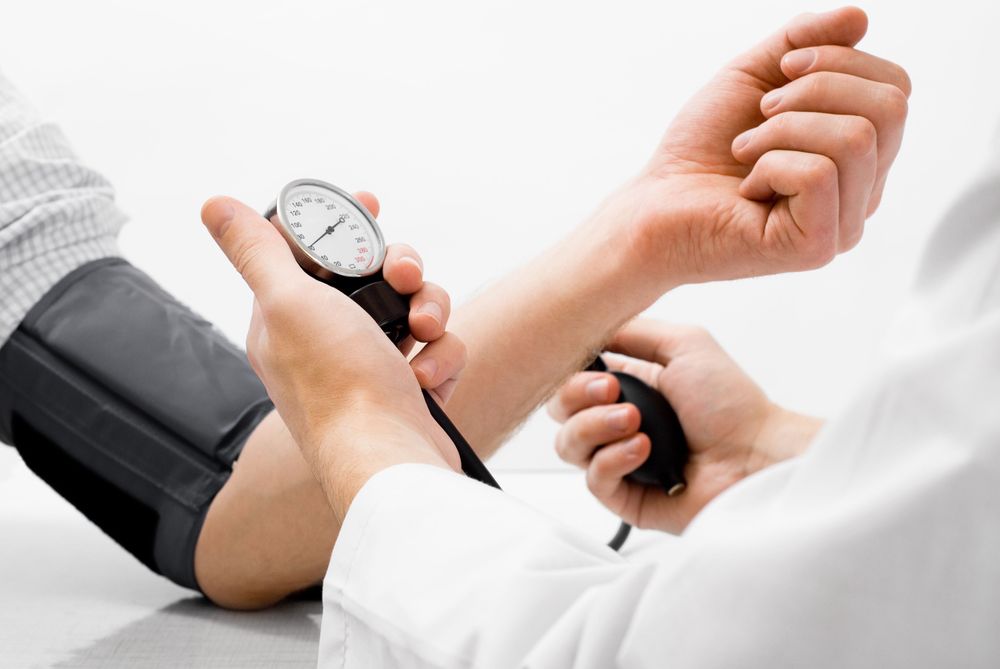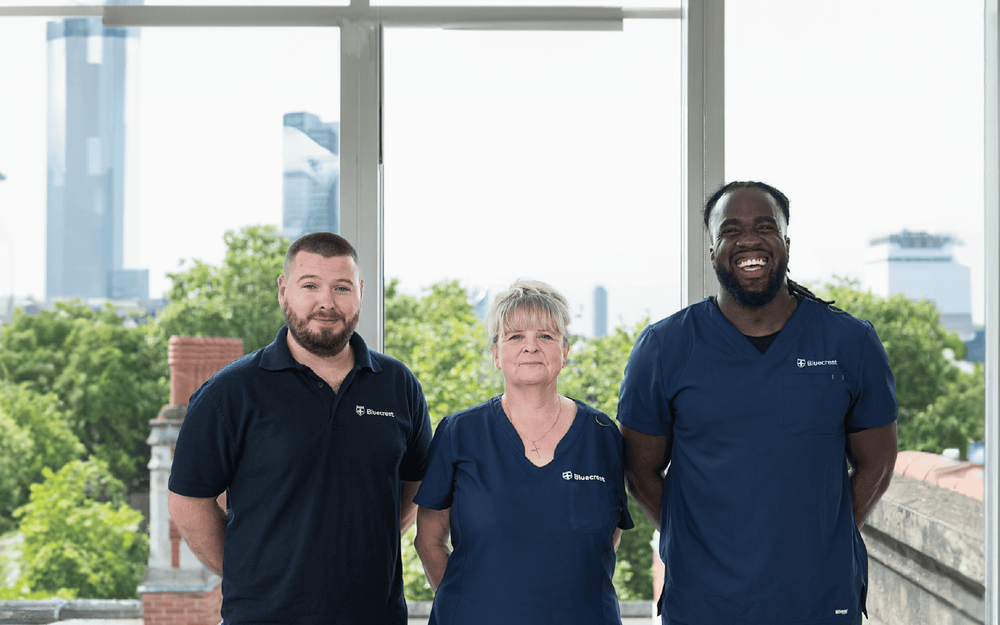
What are the Benefits of Preventive Health Services?
Preventive health services are designed to identify and prevent health conditions in the early stages, often before symptoms are present. As a result, they can include a wide range of measures, from regular health check-ups to immunisations and even education programmes.
The benefits of preventive health services are far-reaching and include everything from helping improve outcomes, empowering individuals to take a more active role in managing their own health, and reducing costs for healthcare systems.
In this article, we delve deeper into the benefits that preventive health services offer and explain how you can access preventive health services through the NHS as well as private providers like Bluecrest Wellness for added peace of mind.
What is preventive health?
Preventive health is a proactive approach to healthcare that aims to identify and treat diseases often before symptoms are present to promote longevity and better health.
Preventive health can include screening for a range of common conditions, many of which are preventable with earlier intervention. This can help you identify some health conditions before you even notice symptoms, which can improve outcomes and help you stay fitter, healthier and more active for longer.
Preventive health also incorporates preventive health measures like immunisations, which can help to reduce your risk of developing certain contagious health conditions, and education programmes which aim to inform you about the risk of certain factors, for example smoking.
Examples of common preventive health services
Some of the most common preventive health services include:
- General health screening (annual health checks) for conditions such as high blood pressure, high cholesterol levels and type 2 diabetes
- Screening for certain types of cancer, including breast, colorectal, cervical and prostate cancer
- Immunisations for common health conditions, like influenza, shingles and measles
- Education programmes, for example, the stop smoking campaign or healthy eating programmes
What is the difference between preventive and diagnostic tests?
The way in which some health conditions are picked up on diagnostic and preventive screening tests differs slightly.
Preventive screening tests are designed to detect health conditions in the early stages, often before symptoms are present. This can help prevent conditions from developing by alerting you to your risk so you can take a proactive approach to managing your risk. Screening tests are often offered generally to a certain population regardless of an individual's current health status.
Diagnostic tests, on the other hand, are used to diagnose or rule out certain health conditions based on symptoms you may be experiencing. As a result, healthcare professionals will order more specific tests tailored to the individual.
Why is a preventive health service important?
Preventive healthcare is important as it can help facilitate better outcomes for patients, ensuring they can access treatment or make any necessary lifestyle adjustments at the earliest opportunity.
Preventive health services can also help increase the efficiency of the healthcare system. That’s because many conditions are more treatable the earlier they are identified and often come with a reduced risk of complications or need for medical intervention. This can save healthcare systems precious time and resources, enabling those who really need treatments to be seen sooner.
What are the benefits of a preventive health service?
Preventive health services can provide insights into a wide range of health metrics. This can include general insights into your health as well as screening or testing for more specific conditions. As a result, the benefits of preventive health services are far-reaching, benefitting not just you but also the healthcare system in general. Below, we explore some of the key benefits of preventive health in closer detail:
Early detection
Preventive health services help detect potential health issues at an earlier stage, often when they are more manageable or treatable. This enables healthcare professionals to put prompt treatment plans in place or offer lifestyle advice that can help prevent the development of certain health conditions.
Better outcomes
Having regular preventive health check-ups to screen for common health concerns can lead to better health outcomes. That’s because many conditions can be more treatable the sooner they are picked up. For example, cervical screening tests can help pick up the very early stages of cervical cancer development, enabling women to access treatment that kills off early cancerous cells before they fully develop.
While some chronic health conditions, like type 2 diabetes, can be prevented mostly by early interventions, such as changes to diet and lifestyle.
Improves quality of life
Preventive healthcare can improve your quality of life, alerting you to risk factors which may be damaging your health, like smoking, poor diet or overconsumption of alcohol. This enables you to take a proactive approach to your health and make any necessary lifestyle changes to reduce your risk of developing chronic health conditions like heart or liver disease.
More cost-effective
Preventive health measures are also a cost-effective management tool for healthcare services in the long run. That’s because catching diseases or health conditions in the earlier stages often reduces the need for more intensive medical management or interventions which can be more expensive than Preventive measures.
But preventive health services can also help avoid indirect costs associated with prolonged illness, such as loss of productivity, absenteeism and disability payments.
Better control over your health
Preventive health services empower individuals to take a proactive approach to managing their own health and wellbeing. By becoming more knowledgeable about your body through regular screening tests, you can make informed choices about factors that may be adversely affecting your health. This can be incredibly empowering, especially for individuals with chronic health conditions who may feel a sense of inevitability about their health status.
How to engage with preventive healthcare services?
There are numerous ways to access preventive healthcare services, from having annual health checks to staying up to date with any recommended immunisations. Below we share some of the ways to engage with preventive health services:
- Attend annual health checks – these can be accessed through the NHS if you meet certain criteria, or you can book a Private Health MOT with a private provider like Bluecrest Wellness.
- Stay up to date with any recommended vaccinations – as well as age or condition-specific vaccines like the shingles and pneumococcal vaccine, it’s important to get seasonal vaccines, like the flu jab, if recommended.
- Attend cancer screening appointments – there are screening programmes available for different types of cancers, such as cervical, bowel and stomach cancer. Ensuring you attend these appointments can help pick up on the early stages of cancer, often when it is more treatable. Find out more about the different types of cancer screening available in our Male and Female Cancer Risk Packages.
- Stay informed – learning more about health conditions you may be at risk of can help you take proactive steps to reduce your risk often through lifestyle changes.
Annual health checks for peace of mind
If you’re keen to know more about your general health and benefit from preventive health services, why not book a Private Health MOT through Bluecrest Wellness?
Not only will you receive insights into key health metrics and your risk of certain health conditions, but by having regular health screening check-ups, you can gain vital information that helps you keep track of your health over time.
Our annual health checks can be booked across the UK, making it easy for you to find a location convenient for you. Plus, you can be confident that we will deliver fast, efficient and accurate results as we have established links with leading UK laboratories and are fully accredited for a wide range of tests. In addition, alongside a comprehensive Results Report, you get free 24/7 access to a GP helpline for a year following your tests.


















